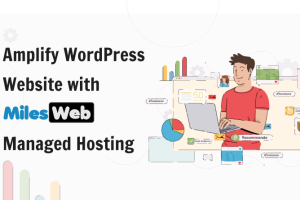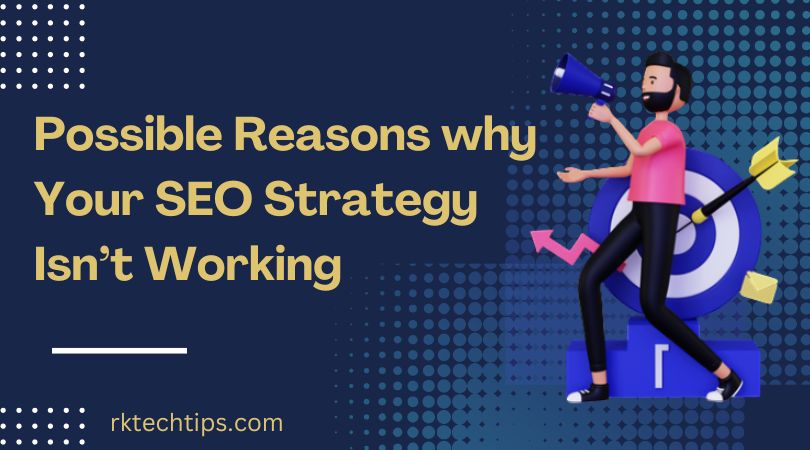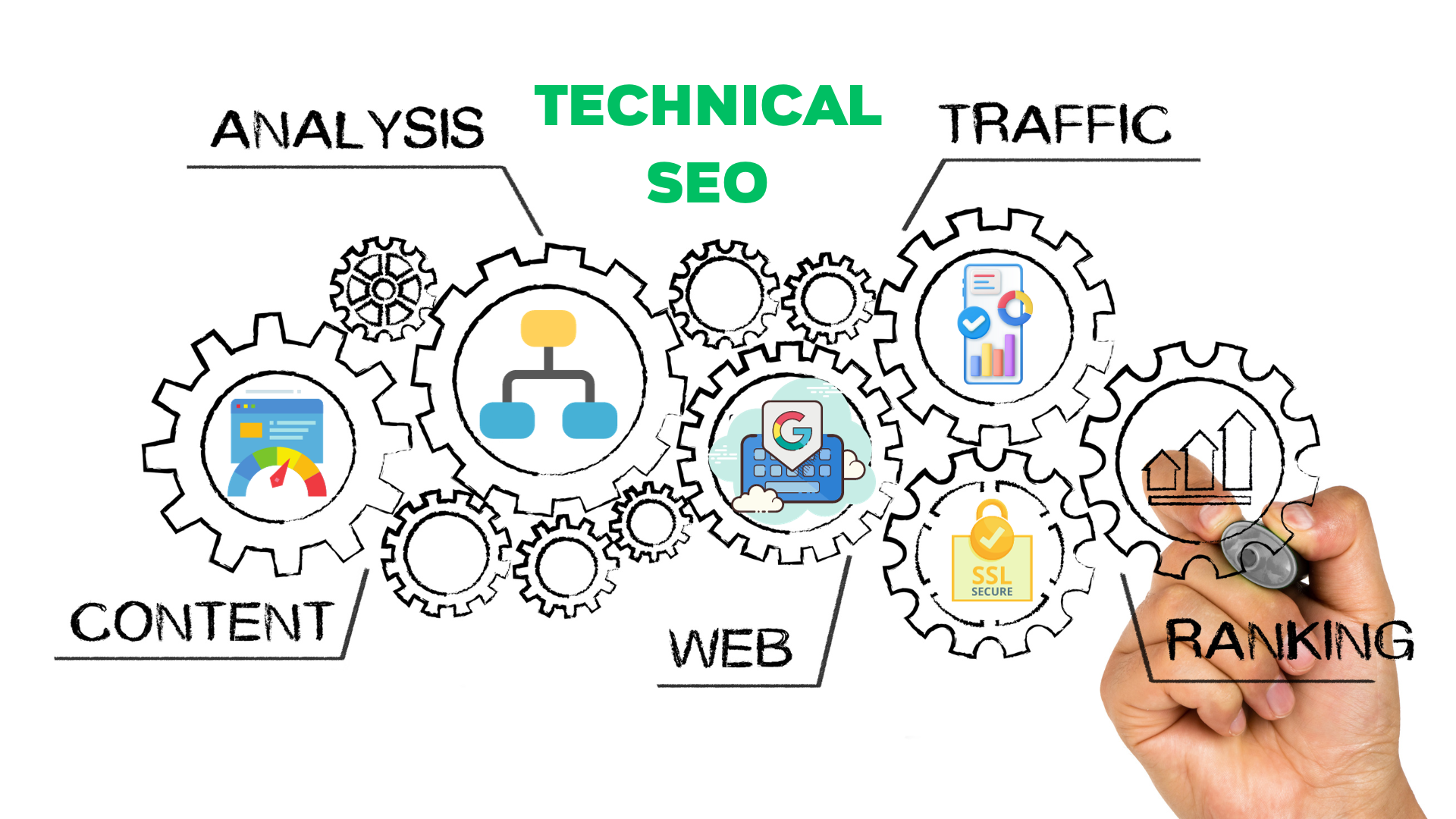Certain businesses sometimes end up in a position where they use a single SEO strategy over & over without any significant results.
SEO, as one of the vital strategical elements of improving your conversion rates, changes over time, and your strategy should follow such changes.
In other words, you’ll always have to consider new ways of attracting folks to your website or – making the site (and your products/services) more visible to people browsing the web.
In today’s article, we’ll talk about the possible reasons why your SEO strategy isn’t working. You’ll have a chance to see where your strategy has gone awry and what you can do about it. Stay tuned!
#1 There’s not enough original content on your website
That’s right! One of the biggest SEO mistakes concerns not having enough original content on the website for your visitors to read.
A while ago, Google made an announcement saying that they’re not so interested in indexing pages that have good old let’s-tell-the-same-story-using-different-words content on them.
So, what you can do about this is update your webpage with fresh content and see whether that will boost your site’s traffic. It most probably will!
One of the possible reasons why your SEO strategy isn’t working is that your website’s content may not be original.

#2 You’re somehow wrong about your target audience
Here’s the thing: specific keywords are more searched than others (obviously), and if you’re in a well-known industry, you utilize a lot of potential.
However, there are those niches folks choose to ignore, and no matter how popular you are under specific search terms, no one will type them into their Google bars.
Also, you’ll need to learn more about your customers and what their specific needs are and avoid targeting the wrong audience.
As we’re sure you know, folks begin with an issue without having any clue as to what the solution will be and that’s where you need to show yourself.
As a marketer, you need to think two steps ahead. Otherwise, you’ll probably fail to catch your potential customer’s attention.
#3 Your website takes a decade to load
There’s probably no need to emphasize that fast website loading speed is one of the key elements to preventing folks from leaving your webpage without clicking on anything and boosting your website’s UX.
Website loading speed is crucial when it comes to search engine rankings. Google suggests that websites should take about 4 seconds to load on average, so keep that in mind.
Many (free) tools are available on the web that measures your website’s loading speed/time. Don’t hesitate to give them a try.
If your website takes too long to load, that will have a negative effect on its UX.

#4 You haven’t optimized your website for mobile users
Ouch! If the above lines are true, you’re missing out on a lot of traffic. More than half the web traffic currently comes from mobile users, so, yeah, it’s downright absurd to “sport” a website that isn’t mobile-friendly.
As was the case with your website’s loading speed, there are many online tools you can try out to check whether your website’s optimized for mobile users. You want to get this done ASAP!
#5 You’ve got some duplicate content on your website
Nope, it’s not about plagiarism. It’s about having two or more pages on your website that have identical content.
Now, we’re well aware that coming up with new content might be a somewhat difficult task, but copy-pasting pages is a definite NO-NO in the world of SEO.
Here’s why that’s so: when Google figures out that there are two or more identical or very similar articles while crawling your website,
it won’t know which one to rank, eventually skipping to rank them all once it fails to come to a decision.
Anyway, duplicate content is one of the most “popular” mistakes within the service industry.
For instance, a certain car company might make a dozen of identical pages with just the names of the towns changed. Be wary of that!
#6 Wait, and what about plagiarism?
While having duplicate pages probably isn’t going to be penalized by Google, having plagiarised content on your website is a serious offense and will most likely be sanctioned.
Needless to say, duplicating pages from someone else’s website is a major NOPE. If found out, plagiarized pages on your website can lead to a DMCA (Digital Millennium Copyright Act) request.
Now, eventually, such an action can result in your website being taken down from both your server and Google. In the worst-case scenario, you could also face a lawsuit.
Having plagiarized content on your website is an absolute NO-NO.

#7 You’ve got a good amount of ads
Another one of the possible reasons why your SEO strategy isn’t working concerns everyone’s favorite topic – ads.
This one you probably know from your own experience as a website user, but having too many ads present on your website can be a major turnoff for most users (those who aren’t masochistic).
Also not only that, but it can even cause your website to rank lower in search engines. What we suggest is that the number of ads you’ve got on each of the pages on your website be cut to a bare minimum.
Not to mention they’ll also have to be somewhat related to the content on the page.
#8 Your website lacks backlinks
Now, Google needs to know that your website is relevant to the niche you’re tackling. Therefore, you’ll need a lot of links that trace back to your content.
That will signalize to Google that your website’s worth looking at. There’s no SEO strategy without the clever use of backlinks; trust us on that one.
You can’t expect to build good website traffic without them. So, how should one build backlinks? There are a couple of ways you can do this:
- Reach out to bloggers with offers of subject-relevant guest posts. Not only will you act as a figure of authority within a certain niche, but you’ll also earn a couple of backlinks.
- Scan the web to check where your products or services are mentioned. If there isn’t a link where it’s supposed to be, contact the creator(s) and see if they could add a backlink.
Lastly, keep this in mind: longer content receives about 75% more backlinks than shorter.
Final thoughts on the subject
There you have it, folks! These are the possible reasons why your SEO strategy isn’t working out the way it’s supposed to.
Now you’re well aware of all the little details that make up a good SEO strategy. Of course, you can’t fit all of them into a 1000-word article, but we’re sure that these will give you a good head-start.














